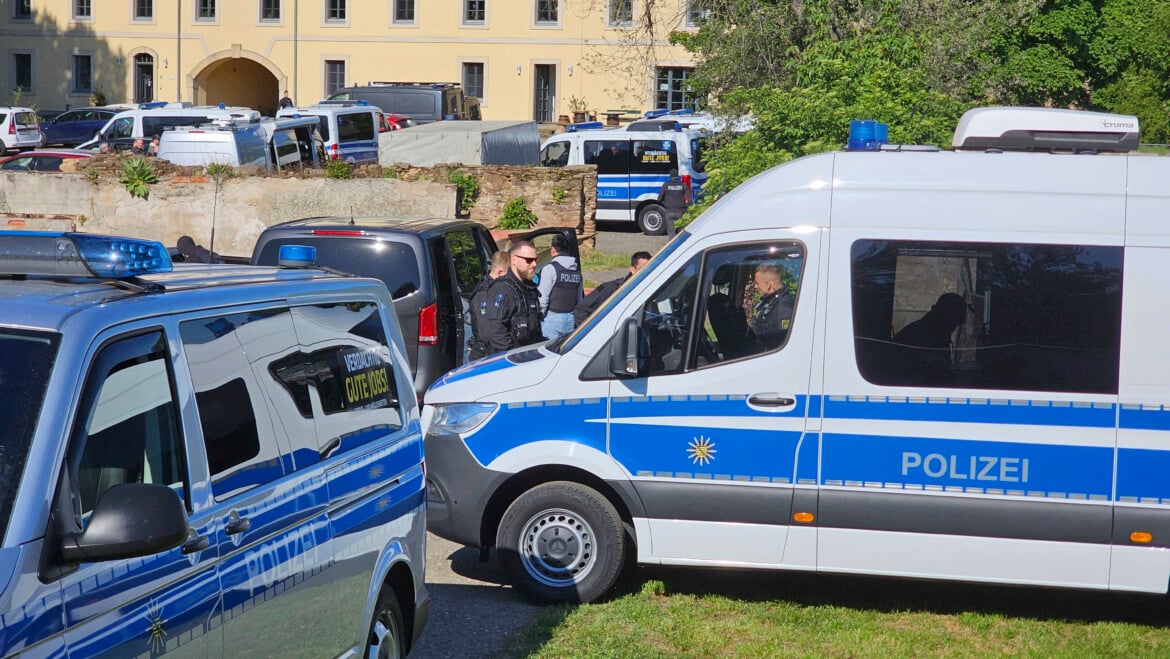Report
The demise of the Kingdom of Germany, a real estate empire with fascist fantasies
It was a delusional and ridiculous idea, as shown by the 70-page plan that details every feature of their imagined fake kingdom, down to minting its own digital currency. But its 6,000 members were bent on overthrowing the government.

The leaders are under arrest, the hideouts have been searched, and at last, the organization that in the past decade had become a veritable counter-state and enemy of democracy has been banned. Police raids in seven federal states marked the criminal and political rise and fall of the “Kingdom of Germany,” the largest group in the world of Reichsbürger (“Reich citizens”), the old-style fascists who dream of restoring the Kaiser’s empire.
With 6,000 members, the semi-occult organization planned to overthrow the Bundesrepublik and replace it with an extreme-authoritarian monarchy headed by founder Peter Fitzek, who had proclaimed himself ruler for life.
It was a delusional and ridiculous idea, as shown by the 70-page plan that details every feature of their imagined fake kingdom, down to minting its own digital currency, the “E-Mark,” valued at €1.10 “at the current rate”. However, the findings of the investigation, carried out together with the Office for the Protection of the Constitution, had seasoned officials on serious edge. It uncovered a nest of dangerous subversives rooted both in the depressed east – Saxony, Saxony-Anhalt, Thuringia and Brandenburg – as well as in the prosperous west – Baden-Württemberg, North Rhine-Westphalia and Rhineland-Palatinate – and revealed the frighteningly extensive financial empire built by the “Kingdom of Germany.”
The wave of arrests launched at dawn on Tuesday was ordered by the new Interior Minister, Alexander Dolbdrint of the CSU, who said he had struck “a significant blow” against a group bent on toppling the rule of law. “The organization had created a kind of counter-state by setting up white-collar criminal structures. Flouting criminal law, its members justified their claim to power through conspiracy narratives, some of them antisemitic. It must be clear that the government will no longer tolerate any attack on the constitutional order,” reads the press note from the minister with the security portfolio in Chancellor Friedrich Merz’s government.
As a result of the raids, the four leaders of the “Kingdom of Germany” were arrested, including the well-known Fitzek, a leading far-right figure long targeted by police, intelligence and courts. A former cook and karate instructor, he had set up a bank and a string of illegal insurance firms to fund his parallel anti-state project and had already served time for financial crimes. Released for health reasons, he first founded the “New Germany” organization in Wittenberg in 2012 and then the organization linked to the Reichsbürger that the Merz government has now formally banned.
All activities of the “Kingdom of Germany” are now prohibited, including campaigns on social media, where the group was especially active, and the accounts used by the core business of the group have been frozen.
The only realm where Fitzek was any kind of “sovereign” was the group’s many properties, including an independent, self-sufficient ecovillage, built not on the principles of environmentalism but those of fascist autarky: self-produced renewable energy, a closed product-exchange network and a private market reserved for followers. In this way, the ultra-right planned to survive outside the system it considered its enemy.
According to the intelligence agency’s report, the vast assets acquired by the “Kingdom of Germany” in 2022 allowed the purchase of two large properties and a plot of more than 50,000 sqm in Saxony. A center had been set up there, offering seminars. The estate includes many buildings, including a hotel, as well as farmland and forest, and was purchased for €2,300,000. The group also bought a castle in Bärwalde, also in Saxony, at a price of over €1,300,000, where it planned to create a so-called “village of the common good” aimed at expanding the kingdom’s territory. To hide the real buyer’s identity, transactions were usually carried out through lesser-known supporters of the group.
Originally published at https://ilmanifesto.it/al-bando-i-vetero-fasci-del-regno-di-germania-un-impero-immobiliare on 2025-05-14
